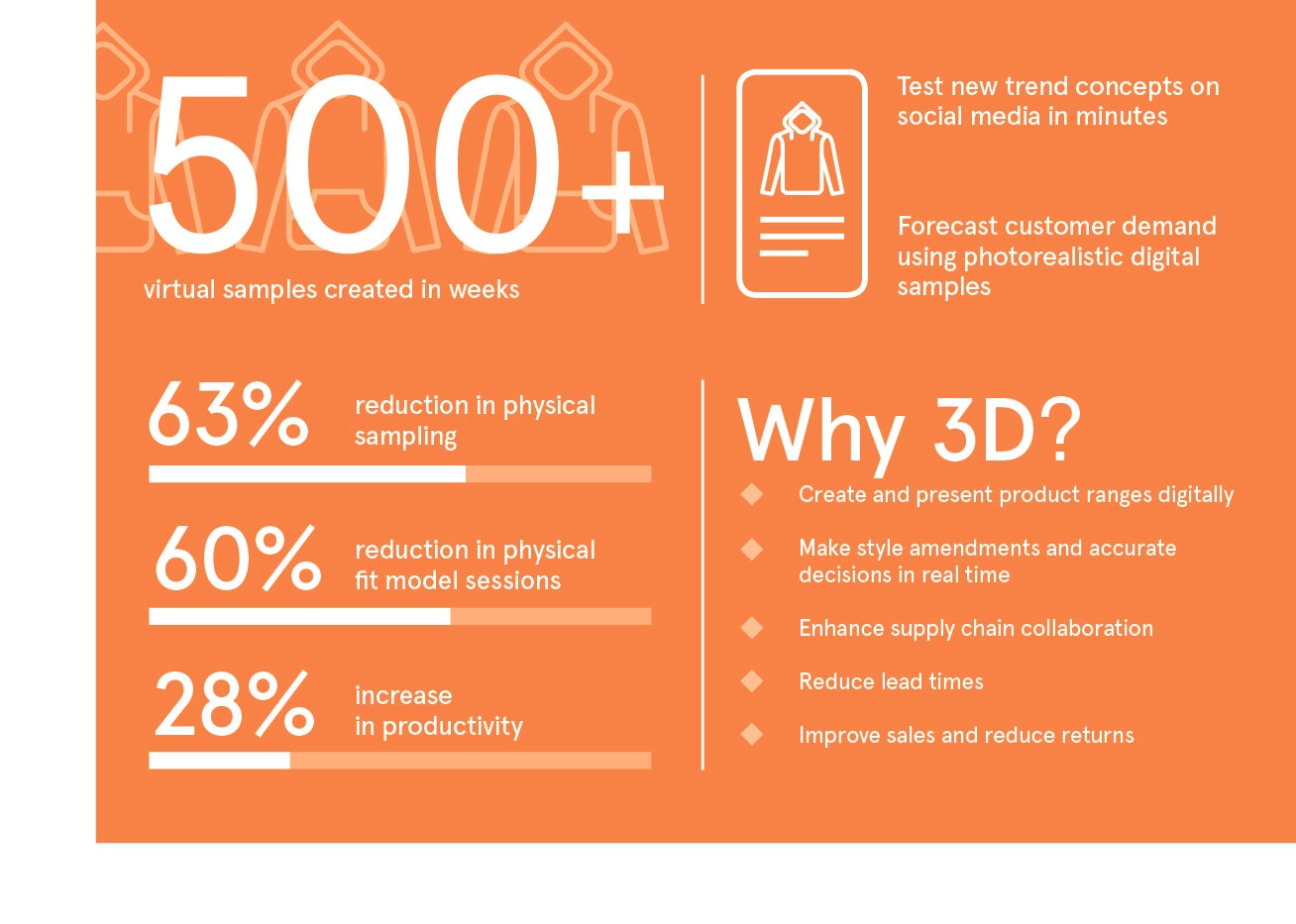Anticipating consumers’ needs is the cornerstone of any fashion retail business. But consumers have more needs than ever and want them met faster than ever. Fashion houses no longer have the luxury of time; their products have to migrate from page to rail as quickly as possible.
Add in consumers’ desire for more product lines, leading to costly smaller batches, and it’s easy to see why the industry is under pressure; brands are consolidating or simply disappearing from the high street.
Applying digital 2D/3D tools can transform the process, increasing productivity and creating a lean product development chain that can cut overheads and improve profitability
But now digital technology is helping overcome these problems, with resultant effects on profitability and sustainability throughout the fashion industry. 2D and 3D visualisations can bring garments to life, enabling companies to save up to 60 per cent in the cost of physical fitting sessions, and 28 per cent in time to approval.
Speed of approval is an important factor in an increasingly fast-paced world, where “see now, buy now” is the consumer mantra; trends can come and go overnight, and any delays in the supply chain can mean the difference between riding the wave or a wipe out. Technology can cut lead times for product from weeks to only days.
The technology behind these tools has been available for a decade or so, but it is only recently that companies have started to embrace and implement it. 2D and 3D offer an end-to-end development solution, connecting everyone from the designer to the buyer in one seamless process.
A 3D visualisation of a product can be sent around the world in seconds. The garment can also be transferred direct to fabric, through the clever use of on demand printing, while micro-factories, where textiles can be digitally printed and automatically cut, are a key driver for success. No longer is it necessary to ship fabric around the world chasing cheap labour; a garment can be brought to life in small batches via print machinery in the next room.
Such micro-factories not only get clothes on to racks in a matter of days rather than months, but can also bring a new level of localism to the fashion industry and help address issues of sustainability; the creation of physical samples that go to waste costs the apparel market a massive $6 billion to $8 billion every year.
No longer are teams working in silos, with all the opportunities for miscommunication that arise. Instead, teams are able to work more efficiently, creating more styles with the same resource. Different avatars mean the product can be “seen” on differently shaped bodies and adjustments made in seconds. Language becomes less of a barrier when the concept can be visualised in 3D on screens across the world.
Design concepts can be tested on social media before being put into production. Different colour options can be tried out in the blink of an eye and at no extra cost, and the result sent direct to the micro-factory at the press of a button.
Whole collections can be reviewed digitally by buyers, with different options assessed in hours rather than weeks. A garment worn by a fashion influencer one day can be on the screen the next.
The rise in the use of technology demands a changed skillset within the industry. Of course, designers who create their best work using paper and pen will continue to do so, but the right use of digital technology can be added to refine and improve the overall process from concept to high street. Now colleges and universities are starting to offer 3D fashion courses, the industry is set to see a revolution in its skills that will increase efficiency.
The global textile industry has for too long been stuck, continuing to use methods of production that would be recognised by manufacturers from the 19th century. Applying digital 3D tools can transform the process, increasing productivity and creating a lean product development chain that can cut overheads and improve profitability.
For more information please visit www.optitex.com or contact elizabeth.brandwood@efi.com

